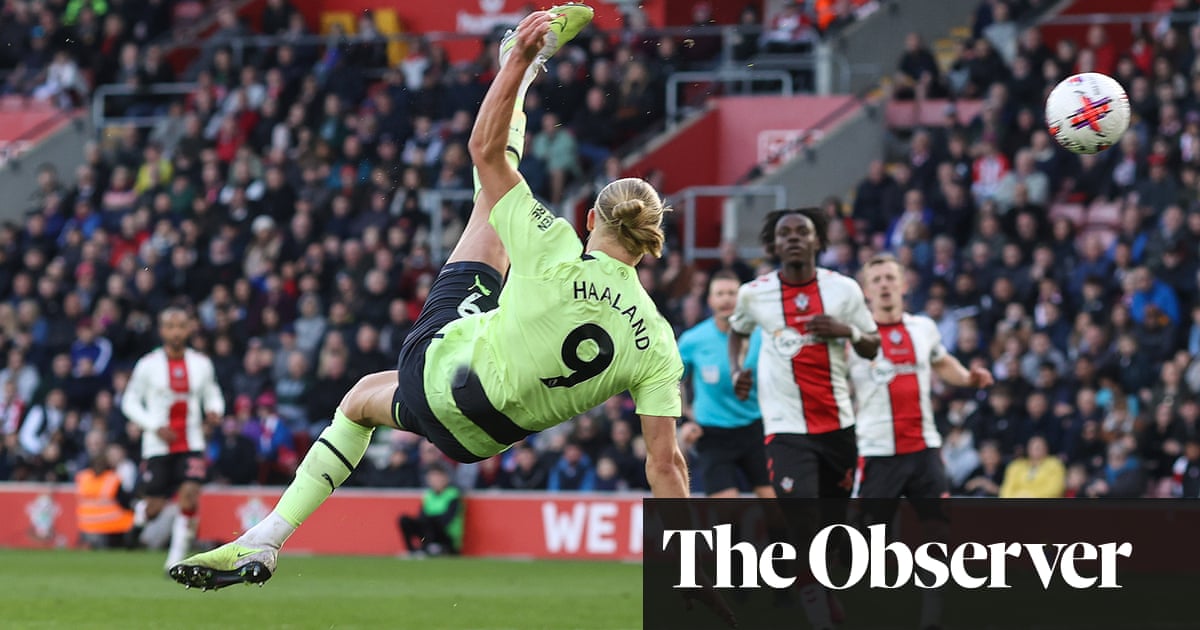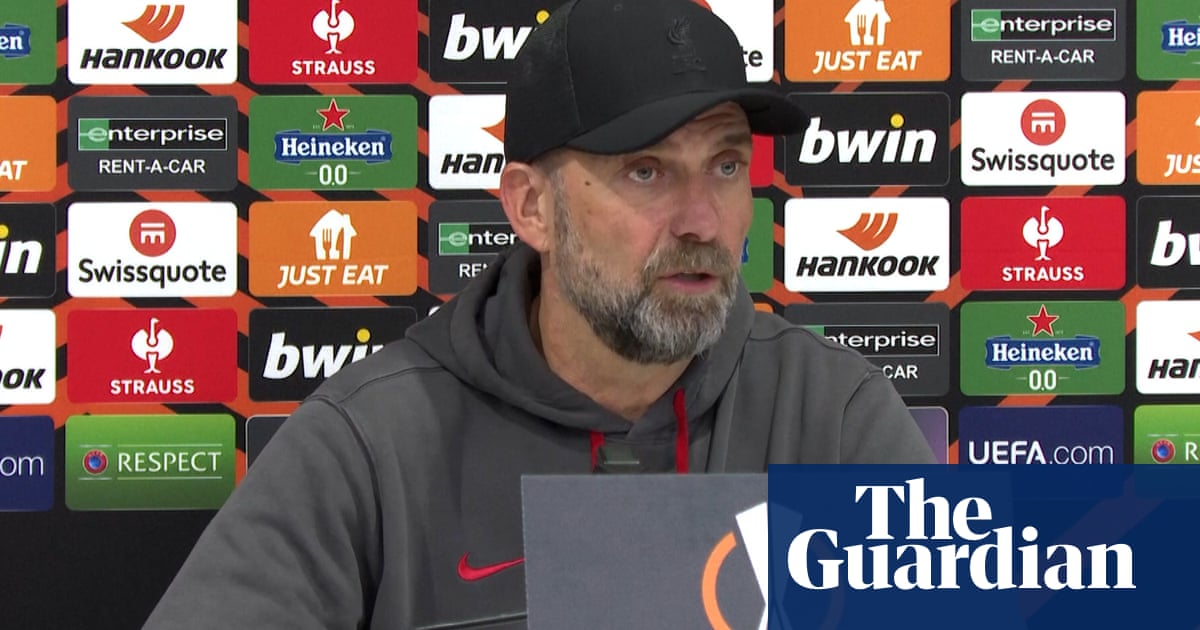
The rivalry between Lionel Messi and Cristiano Ronaldo has riveted football pundits and primary schoolchildren alike, fuelling endless debates over who is the greatest player of modern times – or ever.
The forwards are almost neck and neck on goals scored, Ballon d’Or and Golden Shoe awards, but according to Dr Ian Graham, the outgoing director of research at Liverpool FC, a deeper look at the data reveals a clearcut winner.
“It’s Messi,” Graham told an audience at the Cheltenham Science Festival this week.
The Argentine and Portuguese strikers are the only two in history to have scored more than 800 goals, have won 76 major trophies between them, and each have a plausible claim to being the greatest of all time (GOAT).
The debate over who is best span out over the nine seasons they spent at rivals Barcelona and Real Madrid and reached a climax at last year’s World Cup.
However, Graham said, when the pair were ranked using sophisticated models to evaluate their broader contribution to their team’s success, Messi, 35, who announced on Wednesday he was joining the Major League Soccer side Inter Miami, was clearly superior.
“The difference is that Messi is also a world-class attacking midfielder,” he said. “The chances he creates for his teammates are an order of magnitude greater than Ronaldo. Messi does two jobs brilliantly. Ronaldo does one job brilliantly. That’s the difference.”
Graham, who did a PhD in theoretical physics at Cambridge before his move to Anfield, described being at the forefront of a revolution in football data over the past decade or so.
In the mid-2000s, analysts had only basic data on goals, shots, corners and yellow cards. Today, Liverpool tracks skeletal movement data throughout Champions League games allowing them to assess the value each player is adding – even while not on the ball.
“We get 29 x-y-z positions for each player at 25 frames per second,” Graham said. “Each position is one of your joints. Two of the positions are the eyes, so you can see which direction the players are looking.”
As a result, analysts were increasingly influential in shaping training and player recruitment, where the focus is often value for money, he said.
“Any statistical model will tell you that Kylian Mbappé is the best player in Europe at the moment,” he said. “But unfortunately, financially, he’s out of Liverpool’s league. We’re looking for the best performing players per pound.”
The models are not infallible, though, sometimes proposing players belonging to what Graham called an “island of misfit toys” category – those who, in theory, are “really good and really cheap” but are unsuitable due to “weird playing styles” or other factors.
Asked which club ought to buy Harry Kane, England’s all-time record goal scorer whose contract at Tottenham expires at the end of the season, Graham said that despite Kane’s impressive record, it would be “a club that doesn’t care about value for money”.
“He’s 29. It’s going to be a high transfer fee for three years of performance that might start declining,” Graham said.
He added: “From a data point of view, it’s magnificent the way Alex Ferguson constructed a team that was ageing just as he left [Manchester United]. It really did cement his legacy.”
Graham said that, despite typically having no instinctive curiosity about data, footballers were slowly becoming more interested. “If you can prove you’re making a difference through data, that might be useful for contract negotiations,” he said. “Even if you’re fundamentally not interested … if it means you can make more money then you’re going to be interested.”
Kevin De Bruyne, a Belgian midfielder playing for Manchester City, recently achieved a 30% pay rise increase after he worked with a data analytics company to renegotiate his contract.
Graham said data-driven insights do not always land well, recalling that he earned the nickname “the most cynical man in football” after pointing out, soon after arriving at Anfield, that a 20% chance of scoring in the box could be converted into a 75% success rate if a player won a penalty.
“If you see the big centre-half lumbering in to you, are you going to take a slight dive to turn that into a 75% chance?” he said. “This is not to encourage cheating, but to demonstrate that if you’ve got an opportunity to be tackled, having a penalty is by far the most valuable thing in football.”
Similarly, he said for a team that is 1-0 up, late in the game and facing an attack on goal, purely from a statistical point of view, it would be “the correct thing for your team to get sent off by committing a cynical challenge”.
However, he added that there are still elements of football that cannot be captured by analytics. “Ian Rush was always my favourite player,” said Graham.
“I kind of don’t want the data collected on him. Whatever my memories of him, I don’t want them sullied … even if I have to be cynical about the rest of football.”










